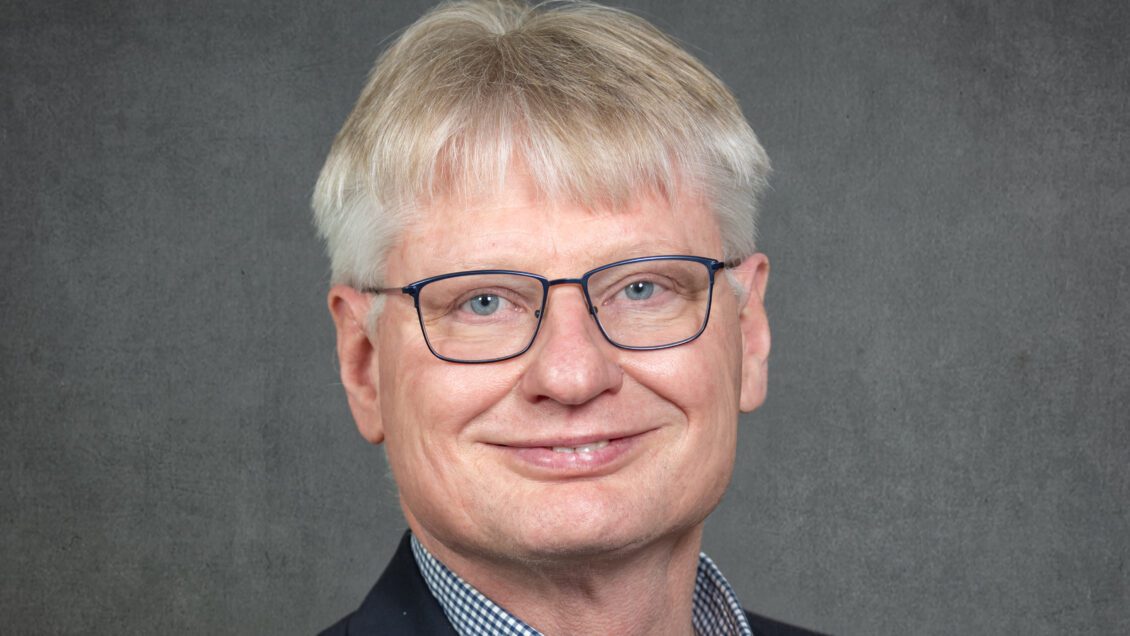Two new leadership roles for Johan Enslin are positioning him as one of the nation’s key experts in energy and power-electronics, while helping raise the profile of Clemson University’s innovation campus in the Lowcountry.
Enslin, who is the Duke Energy Endowed Chair in Smart Grid Technology at Clemson, began a term in January as program director for the U.S. Department of Energy’s Advanced Research Projects Agency–Energy (ARPA-E). He is also starting 2024 as president-elect of IEEE’s Power Electronics Society.

The two roles will put Enslin in frequent contact with some of the nation’s leading engineers and scientists in both academia and industry. He will play a key role in guiding the direction of research into energy and the power electronics that are critical for a wide-range of technologies from the automobile to the smartphone.
Enslin is based at the Clemson University Restoration Institute on the banks of the Cooper River in North Charleston, where Clemson is working to expand its educational and research offerings, especially to working professionals interested in graduate degrees.
His new positions will give him a platform to spread the word about the campus, home to cutting-edge facilities that include the Dominion Energy Innovation Center, the Duke Energy eGRID, the Zucker Family Graduate Education Center and the Warren Lasch Conservation Center.
Enslin said the Clemson campus in Charleston is already attracting students from top universities, including the Massachusetts Institute of Technology and Stanford University, and that the visibility from his new positions will only help.
“We are in the same league,” he said. “I think we do better than most schools in energy, but it’s not that visible. I want to change that. Yes, we do a great job in football at Clemson, but we also have great academic programs.”
Enslin, a national leader in sustainable energy technologies, will retain his position at Clemson and continue to advise students while serving in his new roles.
He brings to both a wealth of experience in academia and industry. During his 43-year career, Enslin has significantly contributed to advancing renewable energy, power systems planning and smart grid technologies.
As program director with ARPA-E, Enslin will help select which “moonshot” projects in energy research get funded. The agency works to advance “high-potential, high-impact energy technologies that are too early for private-sector investment,” according to its website. “ARPA-E awardees are unique because they are developing entirely new ways to generate, store, and use energy.”
As president-elect of IEEE’s Power Electronics Society, Enslin will take a year to learn the ropes from the current president, Brad Lehman. Enslin’s two-year term as president will run from 2025-26.
The society has more than 13,000 members and is one of IEEE’s fastest-growing technical societies. Its members include distinguished award winners, practitioners and preeminent researchers.
The society’s focus is on facilitating and guiding the development and innovation in power electronics technology. That technology is crucial in a number of applications from mass transportation and consumer electronics to renewable energy systems and smart grids.
Hai Xiao, chair of the Holcombe Department of Electrical Engineering at Clemson, said Enslin is well-positioned for global impact.
“I congratulate Johan Enslin on his new roles as ARPA-E program director and president-elect of IEEE’s Power Electronics Society,” Xiao said. “These appointments not only showcase his expertise but also elevate Clemson University’s standing in energy and power-electronics research.”
Sez Russcher, the associate vice president for the Charleston-area Innovation Centers at the Clemson University Restoration Institute, said Enslin’s leadership in sustainable energy aligns seamlessly with Clemson’s innovative spirit.
“His leadership will bring national recognition to Clemson’s innovation campus in Charleston, fostering collaborations and attracting top-tier talent, ultimately advancing our position as a hub for cutting-edge energy research and technology development,” Russcher said. “I offer him my most sincere congratulations and look forward to our continued work together.”
Get in touch and we will connect you with the author or another expert.
Or email us at news@clemson.edu

